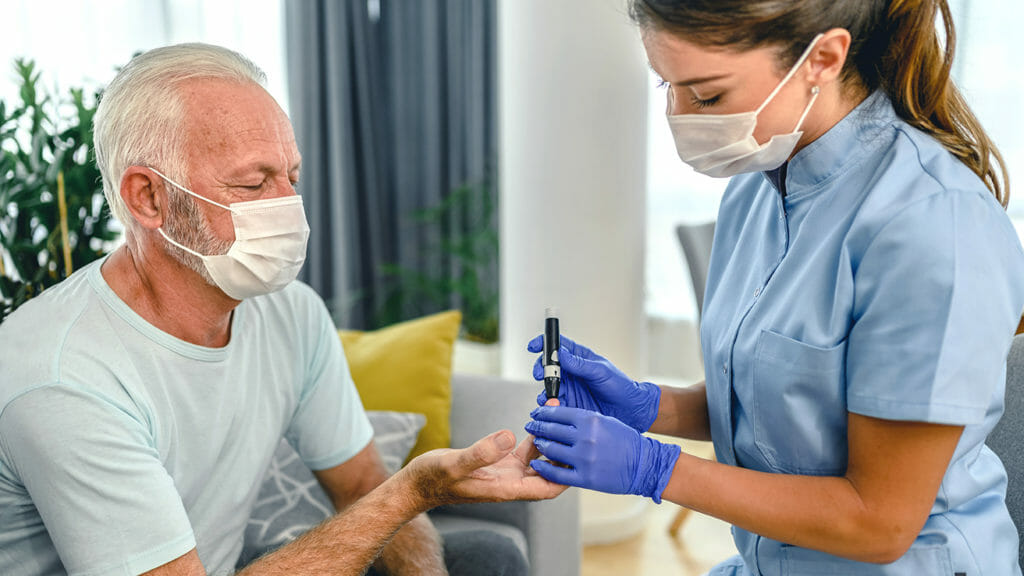
With a COVID-19 emergency order in Massachusetts set to expire March 31, some — but not all — senior living advocacy groups in the Bay State are encouraging state lawmakers to permanently keep “commonsense” policies that allow limited skilled care to be provided in assisted living settings.
Massachusetts state law historically prohibited nurses in assisted living communities from providing skilled care to residents, requiring family members to provide that care or to pay an outside provider.
The Massachusetts Assisted Living Association first introduced a bill in 2017 — An Act Authorizing Common Sense Health Services in Assisted Living — that permitted assisted living nurses to provide simple, non-invasive treatments.
A state emergency order during the pandemic put that bill into a pilot program, allowing assisted living residents to deliver a handful of additional health services, including blood glucose monitoring for residents living with diabetes, simple wound care for skin tears or other minor injuries, and assistance with oxygen.
“We’re asking Gov. Healey’s administration and the Massachusetts Legislature to act to make these commonsense health services permanent by the end of March so families aren’t again forced to administer them personally or pay for private nurses,” Mass-ALA President and CEO Brian Doherty told McKnight’s Senior Living. We don’t believe that otherwise healthy older adults should have to pack up and move into expensive skilled nursing facilities due to their need for services as simple as a finger prick to check blood sugar.”
A report from Collective Insight and the Gerontology Institute’s LeadingAge LTSS Center @UMass Boston evaluated the policy and released a report in January 2022 on the positive effects that the policy had on assisted living staff members, residents and their families.
Former Massachusetts Gov. Charlie Baker (R) extended the pandemic-era policy several times. Doherty said that making the services permanent would lead more assisted living providers to offer the health services option for residents.
“The uncertainty of temporary orders and time-limited extensions has led many providers to wait until these services are allowed permanently before offering them, as they worry about the prospect of suddenly not being able to provide important, yet basic, services to residents when temporary orders might end.”
LeadingAge Massachusetts voiced its support for legislation to allow “common sense services in assisted living as we seek solutions that allow residents the ability to receive necessary services enabling them to live safely in assisted living as long as possible,” President Elissa Sherman told McKnight’s Senior Living.
Services included under the definition of basic health services generally are not covered by Medicare and are provided by family members with little or no training.
“These services have been safely delivered by licensed nurses in assisted living residences throughout the pandemic, and we believe they should be allowed permanently,” Sherman said.
Other industry advocates, however, were not as supportive of the move that extended the scope of practice in assisted living. The Massachusetts Senior Care Association opposes the initiative as drafted.
“We believe the legislation is unnecessary, redundant and inconsistent with the intent of Massachusetts law that promotes assisted living residences as a ‘social’ housing model for elderly and disabled individuals,” MSCA President Tara Gregorio told McKnight’s Senior Living. “We remain committed to working with policymakers to draft legislation that appropriately balances an individual’s desire to safely age in place with the need to provide additional consumer protections and oversight for skilled nursing to be performed in an assisted living residence.”
“Parity and accountability” are “crucial” to ensuring that residents across the long-term care continuum receive high-quality skilled nursing services, she added.




